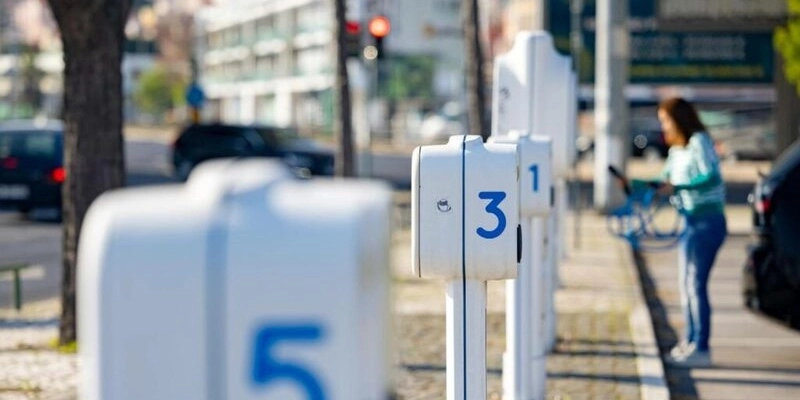In an analysis carried out by the Association of Electric Vehicle Users (UVE), the prices of Charging Point Operators (CPOs) in Portugal are regularly examined.
This is done in order to identify those with more affordable rates or those that deviate significantly from the average.
As a result, users can make informed decisions regarding the charging costs of their electric vehicles, a crucial piece of information in the context of sustainable mobility.
Below, Mobility Portal Europe presents a ranking of the charging prices of the main operators in the country, ordered from the cheapest to the most expensive:
- WENEA: 0.21 euros per kilowatt-hour (€/kWh)
- GASFOMENTATION: €0.24/charge; €0.08/minute; €0.05/minute
- Atlante: €0.2499/charge before 60 minutes; €0.25/kWh before 60 minutes; €0.20/minute after 60 minutes
- CEPSA: 0.2499 €/charge; 0.30 €/kWh
- EVCE: €0.2964/charge; €0.05/minute; €0.10/minute
- Douromobe: €0.2964/charge; €0.05/minute
- KLC: 0.2964 €/charge; 0.06 €/kWh
- CABLE Energía: €0.2964/charge; €0.36/kWh
- DTE: €0.30/charge; €0.15/minute; €0.35/kWh; €0.18/minute after 30 minutes
- EDP: 0.261 €/charge; 0.10 €/kWh; 0.015 €/min
- MOBILETRIC: €0.2608/charge; €0.039/minute
- BLU: €0.2608/charge; €0.045/minute
- Galp: €0.35/kWh; €0.50/charge; €0/minute before 30 minutes; €0.18/minute after 30 minutes
- Ionity: 0,51 €/kWh
- Powercharge: €0.03/minute; €0.08/minute
- Power Dot: €0.30/charge; €0.09/kWh; €0.08/minute; €0.0224/minute
- PRIO: €0.30/minute; €0.13/minute
- Iberdrola: 0.25 €/charge; 0.13 €/kWh
- Iberdrola | bp Pulse: €0.25/charge; €0.10/minute; €0.28/kWh; €0.05/minute
- Repsol: €0.30/charge; €0.05/kWh; €0.12/minute before 45 minutes; €0.15/minute after 45 minutes
- EVOLUT Green: 0,30 €/charge; 0,03 €/minute
- EVIO: 0,08 €/minute
The data was obtained from the MOBI.E website.
How much does it cost to travel 100 km in an electric vehicle?
A document published by UVE presents a detailed analysis of the cost of travelling 100 kilometres with an electric vehicle compared to an internal combustion vehicle.
The average price for zero-emission cars charged mostly at home is significantly lower than that of diesel or petrol cars, showing an economic advantage for electric vehicle users.
Rates vary depending on the modality.
At home, using a bi-hourly rate, the cost is 2.07 euros for every 100 km travelled.
In contrast, charging on the public network is significantly more expensive, costing 7.79 euros per 100 km, which represents a significant increase compared to charging at home.
This study highlights that, to achieve maximum economic benefit, most charging should be done at home, rather than at public stations.
However, public stations are essential for long trips and emergencies, and the cost remains lower than fossil fuels.
Deviation of charging prices in the public network
The association also analyses the deviation of charging prices in the public network compared to the average value.
Operators with large variations in their rates are identified, both in AC and DC charging stations.

The CPOs with the largest price deviations are IONITY and DTE, with increases greater than 70% of the average at DC fast charging stations.
It also reveals that the most expensive ones tend to install fewer charging stations, while those with more affordable rates, such as GASFOMENTO and Atlante, maintain a greater number of stations.
This increases its competitiveness and accessibility for users.
In this way, GASFOMENTO, Atlante and CEPSA are positioned in this report as the most economical options for charging electric vehicles in Portugal.







